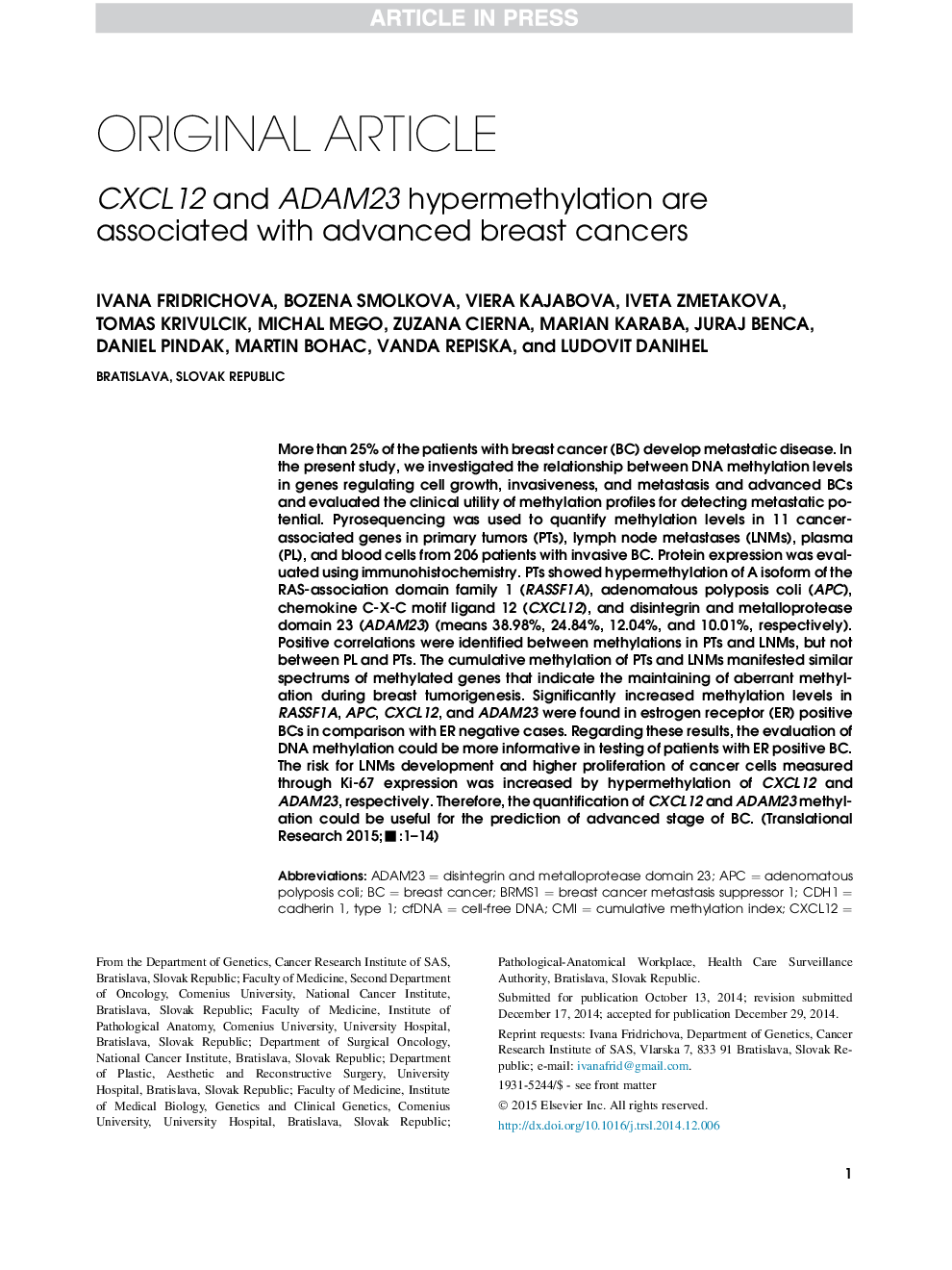| Article ID | Journal | Published Year | Pages | File Type |
|---|---|---|---|---|
| 6156102 | Translational Research | 2015 | 14 Pages |
Abstract
More than 25% of the patients with breast cancer (BC) develop metastatic disease. In the present study, we investigated the relationship between DNA methylation levels in genes regulating cell growth, invasiveness, and metastasis and advanced BCs and evaluated the clinical utility of methylation profiles for detecting metastatic potential. Pyrosequencing was used to quantify methylation levels in 11 cancer-associated genes in primary tumors (PTs), lymph node metastases (LNMs), plasma (PL), and blood cells from 206 patients with invasive BC. Protein expression was evaluated using immunohistochemistry. PTs showed hypermethylation of A isoform of the RAS-association domain family 1 (RASSF1A), adenomatous polyposis coli (APC), chemokine C-X-C motif ligand 12 (CXCL12), and disintegrin and metalloprotease domain 23 (ADAM23) (means 38.98%, 24.84%, 12.04%, and 10.01%, respectively). Positive correlations were identified between methylations in PTs and LNMs, but not between PL and PTs. The cumulative methylation of PTs and LNMs manifested similar spectrums of methylated genes that indicate the maintaining of aberrant methylation during breast tumorigenesis. Significantly increased methylation levels in RASSF1A, APC, CXCL12, and ADAM23 were found in estrogen receptor (ER) positive BCs in comparison with ER negative cases. Regarding these results, the evaluation of DNA methylation could be more informative in testing of patients with ER positive BC. The risk for LNMs development and higher proliferation of cancer cells measured through Ki-67 expression was increased by hypermethylation of CXCL12 and ADAM23, respectively. Therefore, the quantification of CXCL12 and ADAM23 methylation could be useful for the prediction of advanced stage of BC.
Keywords
CXCL12PR-BPBCsADAM23TIMP3Brms1RASSF1ALNMLICCDH1TNMSOCS1ERαCMIAPCcfDNAHER2IRSKi-67DICcell-free DNAPpsadenomatous polyposis colistandard deviationimmunohistochemicalIHCSykPrimary tumorBreast cancersuppressor of cytokine signaling 1breast cancer metastasis suppressor 1peripheral blood cellsTNM classificationspleen tyrosine kinaseLymph node metastasisimmunoreactive scorePlasmaLymph nodeEstrogen receptorEstrogen receptor alphaHuman epidermal growth factor receptor 2Progesterone receptor
Related Topics
Health Sciences
Medicine and Dentistry
Medicine and Dentistry (General)
Authors
Ivana Fridrichova, Bozena Smolkova, Viera Kajabova, Iveta Zmetakova, Tomas Krivulcik, Michal Mego, Zuzana Cierna, Marian Karaba, Juraj Benca, Daniel Pindak, Martin Bohac, Vanda Repiska, Ludovit Danihel,
